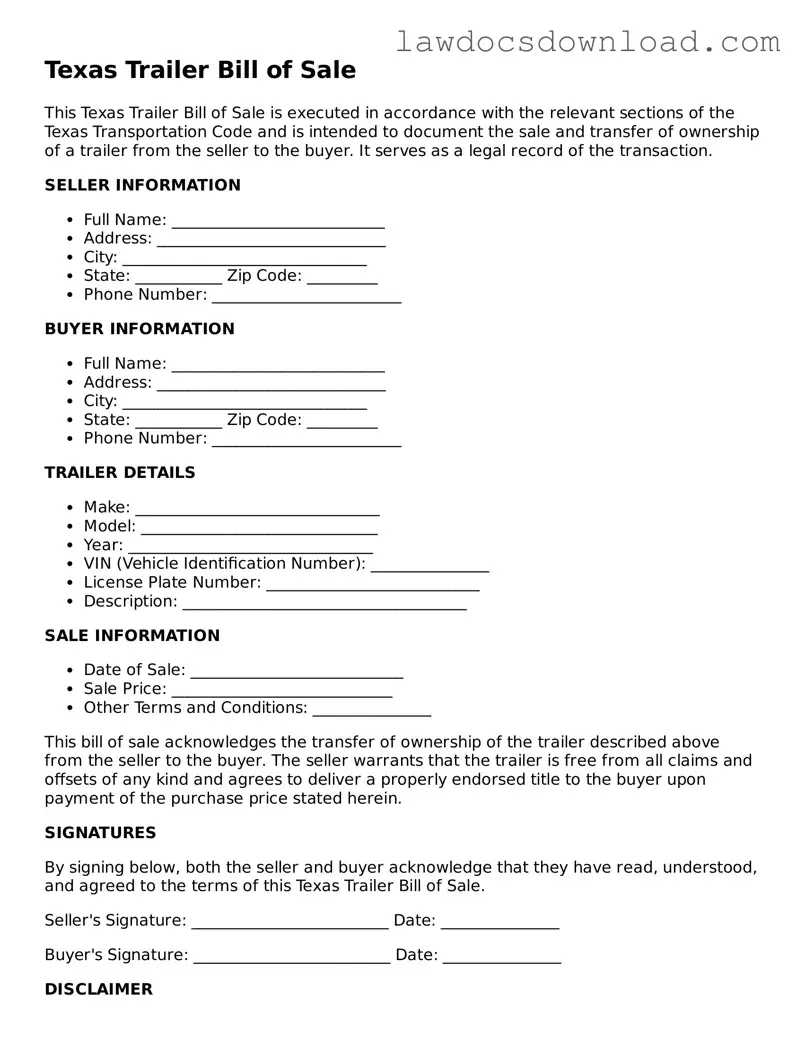One common mistake when filling out the Texas Trailer Bill of Sale form is not providing a thorough description of the trailer. Buyers and sellers must include details like the make, model, year, and VIN (Vehicle Identification Number) to prevent any confusion about the trailer in question. This omission can cause significant issues later, especially if disputes arise regarding the trailer's condition or specifications.
Another frequent error is neglecting to verify and include the correct personal information for both the buyer and seller. It's crucial that names are spelled correctly and that addresses and contact information are current and accurate. Errors in this area can lead to difficulties in future communications or when trying to enforce the terms of the sale.
Forgetting to specify the sale price or not being clear about it is also a common mistake. The document must clearly state the amount the buyer agrees to pay for the trailer, including any taxes or additional fees. Ambiguity regarding the sale price can lead to misunderstandings or legal challenges down the line.
Some people make the mistake of not stating the payment method or terms clearly. Whether the payment is to be made in cash, by check, or through a payment plan, this information should be clearly documented. Including payment terms helps prevent disputes about the payment status or terms after the sale.
A critical oversight is failing to sign and date the Bill of Sale. The signatures of both parties, along with the date of the transaction, are essential to validate the document. Without these, the Bill of Sale may be considered null and void, offering no legal protection if issues arise.
Leaving out any warranty information is another common error. If the trailer is being sold "as is," or if there is a warranty covering certain aspects of the trailer, this information must be explicitly stated. Failing to do so can lead to false expectations and legal complications.
Not including a lien release statement, if applicable, is a mistake that can cause a lot of trouble. If the trailer is currently under a lien, this must be resolved, and proof of the lien release should be attached to the Bill of Sale to ensure the buyer receives clear title to the trailer.
Ignoring the need for a notary can also be problematic, especially when required. While not always mandatory, having the Bill of Sale notarized adds a layer of legal protection and authenticity to the transaction, especially in disputes.
Finally, failing to provide copies of the completed Bill of Sale to both the buyer and the seller is a mistake. Each party should keep a copy for their records to protect their interests and serve as proof of transfer of ownership.

